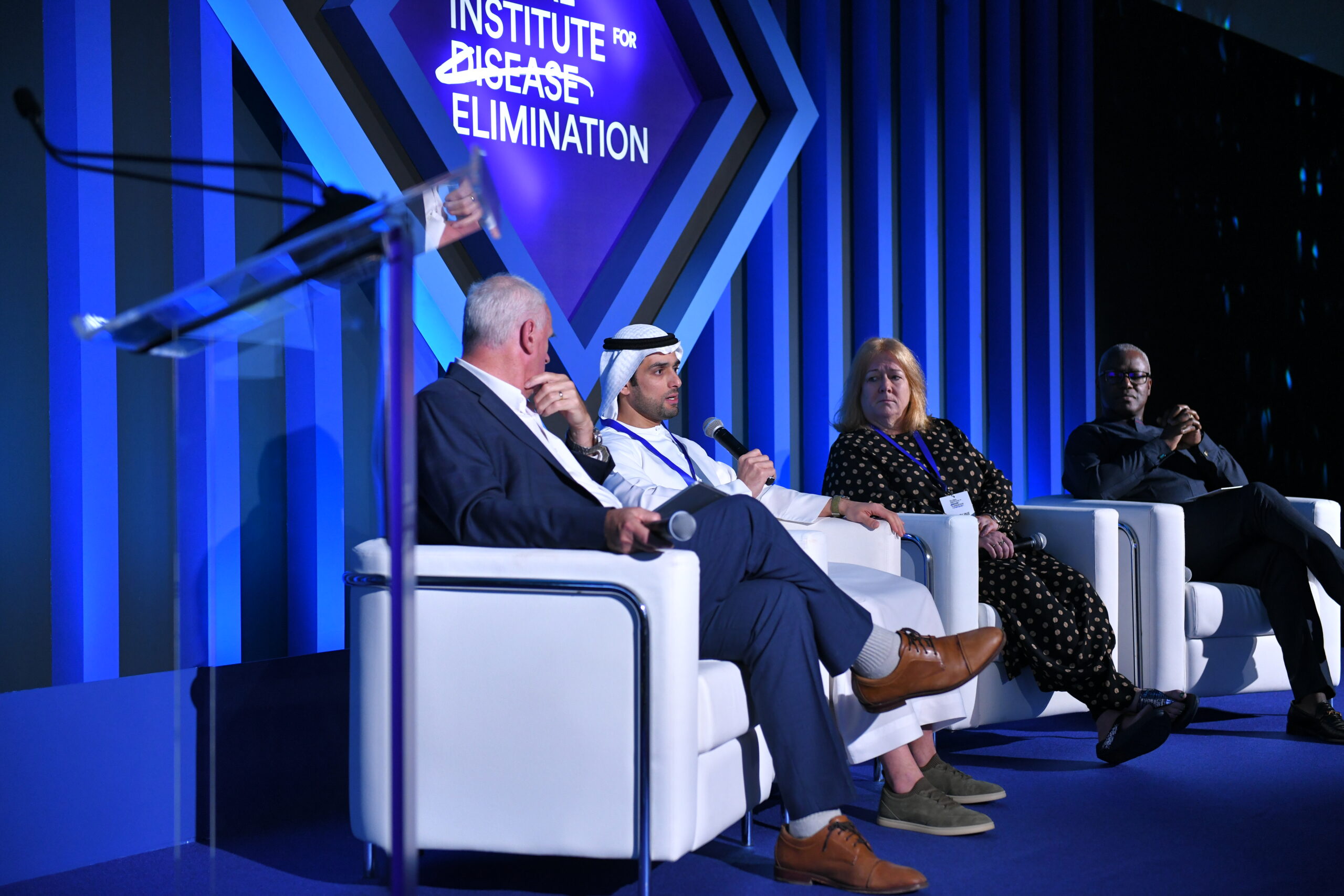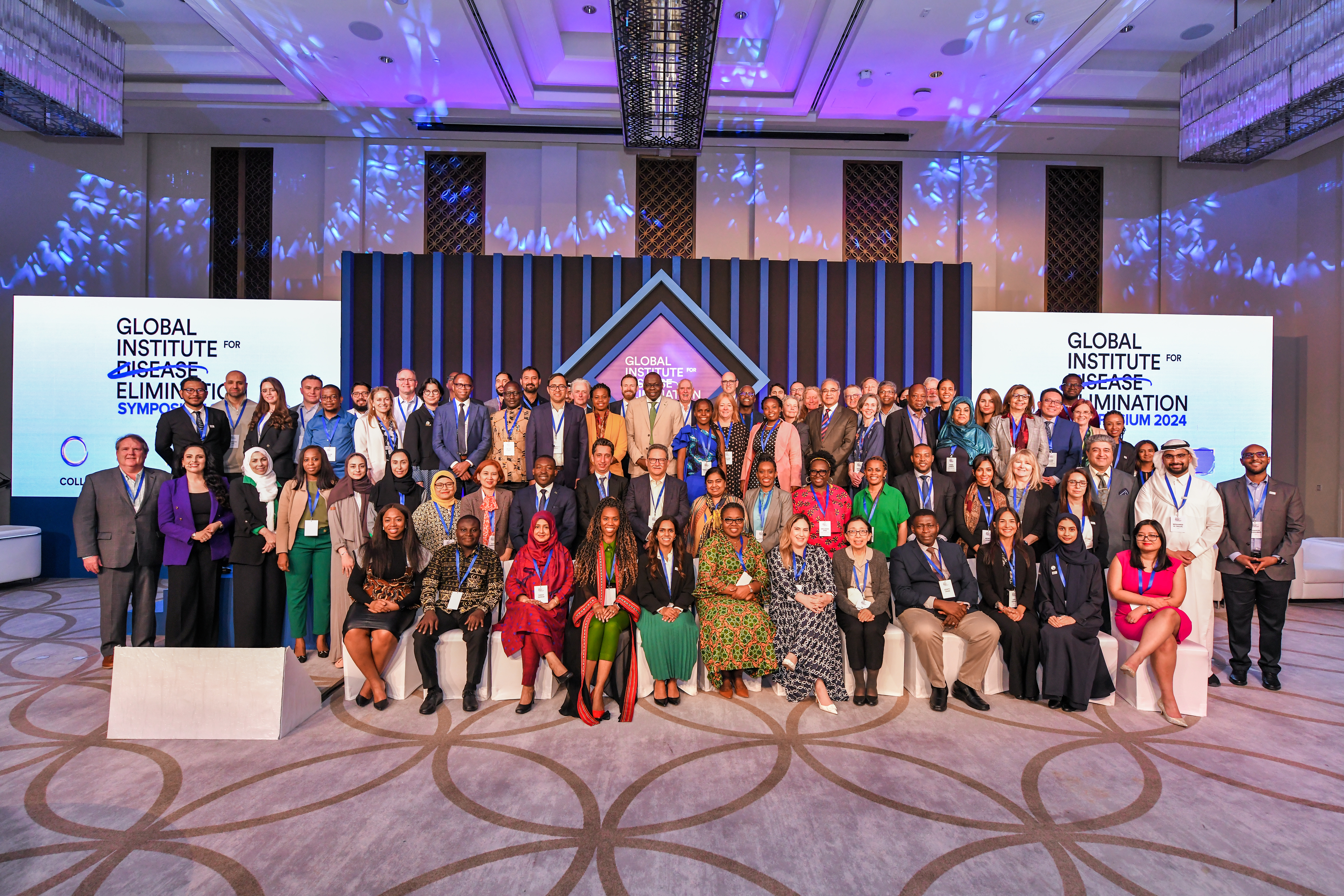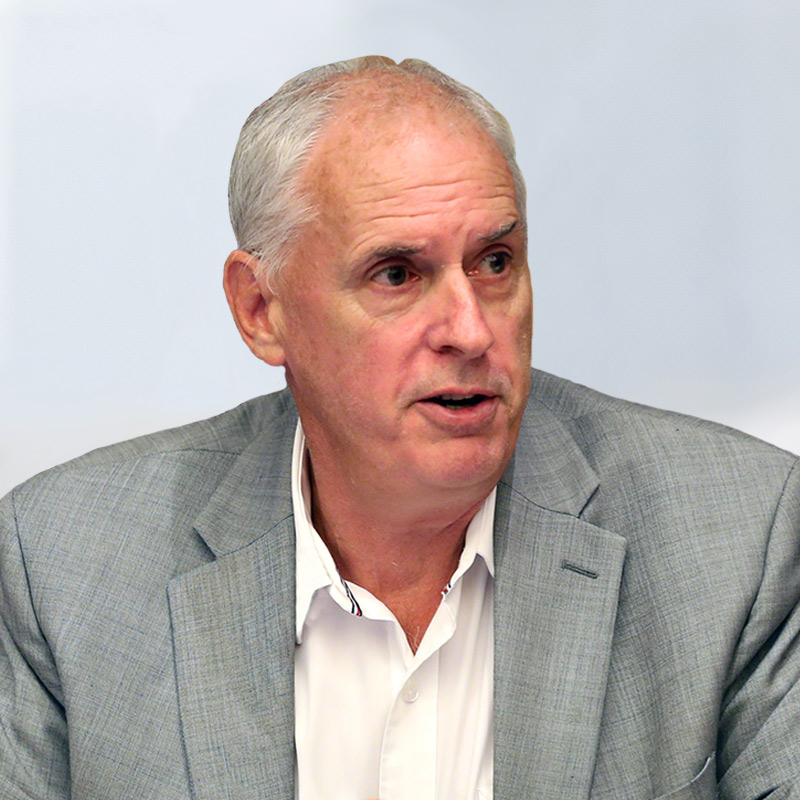Integrate to eliminate: More innovative, collaborative and community-led approaches needed to accelerate progress towards disease elimination
By Simon Bland, CBE
From climate change to conflict, the challenges faced by infectious disease elimination and eradication efforts are many. Indeed, smallpox is the only human disease to be wiped off the face of the planet, and that announcement was made over forty years ago. With huge advances in science since 1980, it may be surprising to some that eradication of a second disease still eludes us. But technological innovation alone isn’t enough to achieve what is one of the toughest tests for humankind. We need to optimize the use of all the tools in the global health toolbox, and we need more of them to accelerate progress.
That was the catalyst for GLIDE’s first symposium held in Abu Dhabi this February.
Launched five years ago, GLIDE’s mission is to advance knowledge and accelerate progress towards disease elimination and aim to achieve sustainable disease elimination by elevating awareness and engagement, advancing elimination, and accelerating progress. The impact of our work and approach is highlighted by the more than 100 global health, industry, philanthropy, and government leaders and officials from over 30 countries who attended the two-day inaugural symposium. This multi-sector approach is crucial for disease elimination efforts.
In my opening address, I illustrated the huge progress that modern science and medicine have brought to humankind and outlined the challenges and hurdles for disease elimination that must be overcome. As ever, geopolitics is high up the list. In 2024, there are elections in 64 countries plus the European Union – more than any year in history. How will political priorities shift? How will official development assistance be impacted? Humanitarian crises are fueling disease outbreaks. Antimicrobial resistance is rendering some life-saving treatments obsolete, and climate change is moving people and disease vectors into new regions and countries, in ways we are only just beginning to understand.
Despite these challenges, there is cause for optimism.
Wild polio and Guinea worm disease are on the cusp of eradication. To date, over 40 countries have eliminated malaria. 50 countries have eliminated at least one neglected tropical disease (NTD) and, with Iraq’s elimination of trachoma as a public health problem in July 2023, the world is at the halfway mark to the 100-country target set in the latest World Health Organization Neglected Tropical Disease Roadmap. In 2023, only 13 cases of Guinea worm disease were reported worldwide – the lowest number reached thus far.

But how do we get elimination, and in turn eradication, over the line? One big clue came from Nassar Al Mubarak, CEO of Reaching the Last Mile, who discussed how listening to communities played a large role in the UAE eliminating polio and malaria. A top-down approach will not be successful; the voices of those most affected must be heard and acted upon. Interventions must be country and community-led; an opinion widely echoed by other speakers during the symposium.
To eradicate, we must integrate.
A golden thread running through the symposium was integration. More than ever, a collaborative cross-border approach is required to strengthen existing interventions. But integration without imagination will stall progress. We must think of new ways to partner that take in local context and reframe integration as an investment. Moving away from a zero-sum mindset to find opportunities that are truly ‘win-win’ is crucial, catalyzing organizations to work together and deliver what communities need.
When it comes to innovation, there is no magic bullet.
Innovation was another often-heard word… quickly followed by equity. New vaccines and treatments are vital, but everyone must have the chance to access them, and implementation must be bespoke. There is no ‘one-size-fits-all’ to disease elimination.
To maximize the latest medicines, we must innovate within some of the more traditional public health tools such as data collection and analysis. A new vaccine without disease surveillance is like driving a car without a steering wheel – you can’t reach the places you need to be. Artificial intelligence has the potential to accelerate game-changing reliable disease monitoring and outbreak projection, allowing decision-makers to target limited resources even more effectively.
Disease eradication is the pinnacle of public health. This symposium reminded us that there is no single solution that will get the job done, but importantly also highlighted that while it’s incredibly difficult, it is not insurmountable.
I am thrilled the event was such a huge success and am grateful to all those who attended. The wave of optimism that developed over the two days must continue – momentum must be carried forward.
The innovation, interconnectivity, and sense of community were palpable – a blueprint for what’s needed to improve the lives and livelihoods of some of the world’s most vulnerable people.


Simon Bland
Chief Executive Officer, GLIDE
Simon Bland has over 40 years of international development experience straddling marine and natural resource management, development economics, and global health. He joined GLIDE in 2019 after six years as the Director of the UNAIDS New York Office. He began his career as a volunteer with the Voluntary Services Overseas (VSO) in Papua New Guinea and then joined the United Kingdom’s Department for International Development, working in Africa, South and Southeast Asia, and led country programs in Russia, Ukraine, Kenya, and Somalia before covering health and humanitarian institutions in Geneva. He was chair of the Global Fund to Fight AIDS, TB and Malaria from 2011-2013, sat on the Boards of GAVI, UNITAID, UNAIDS, RBM, GHC and Malaria No More (UK), and was a member of the Forum on Public Private Partnerships within the National Academies of Sciences, Engineering and Medicine in Washington DC. In 2013, Simon was awarded a CBE in the Queen’s Birthday Honors list for service to Global Health.